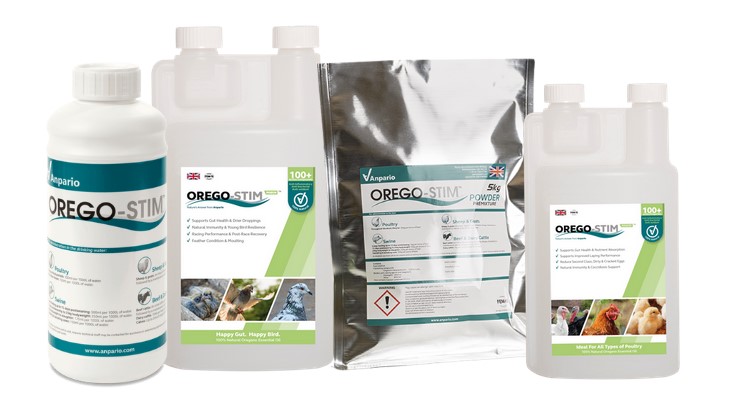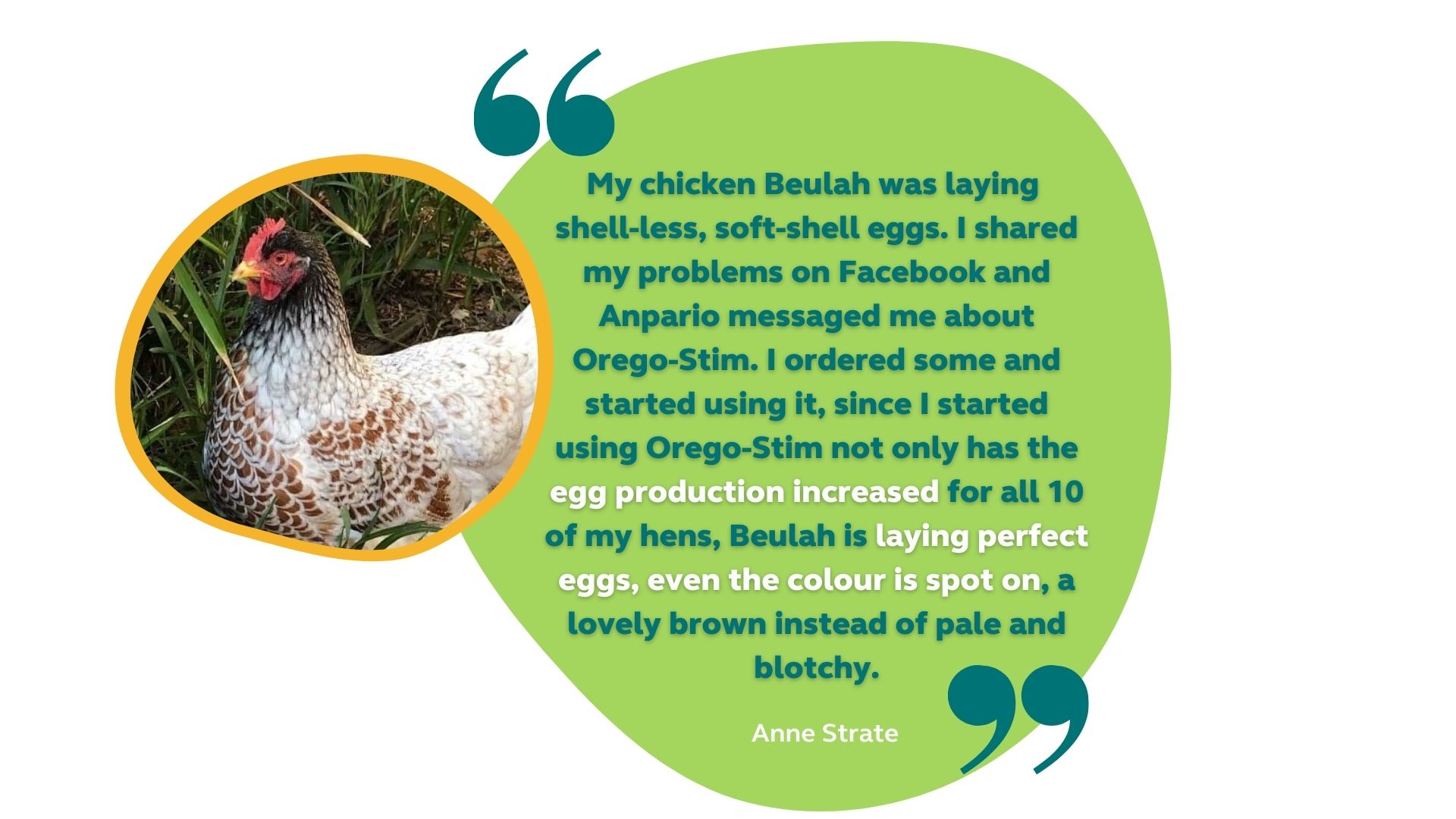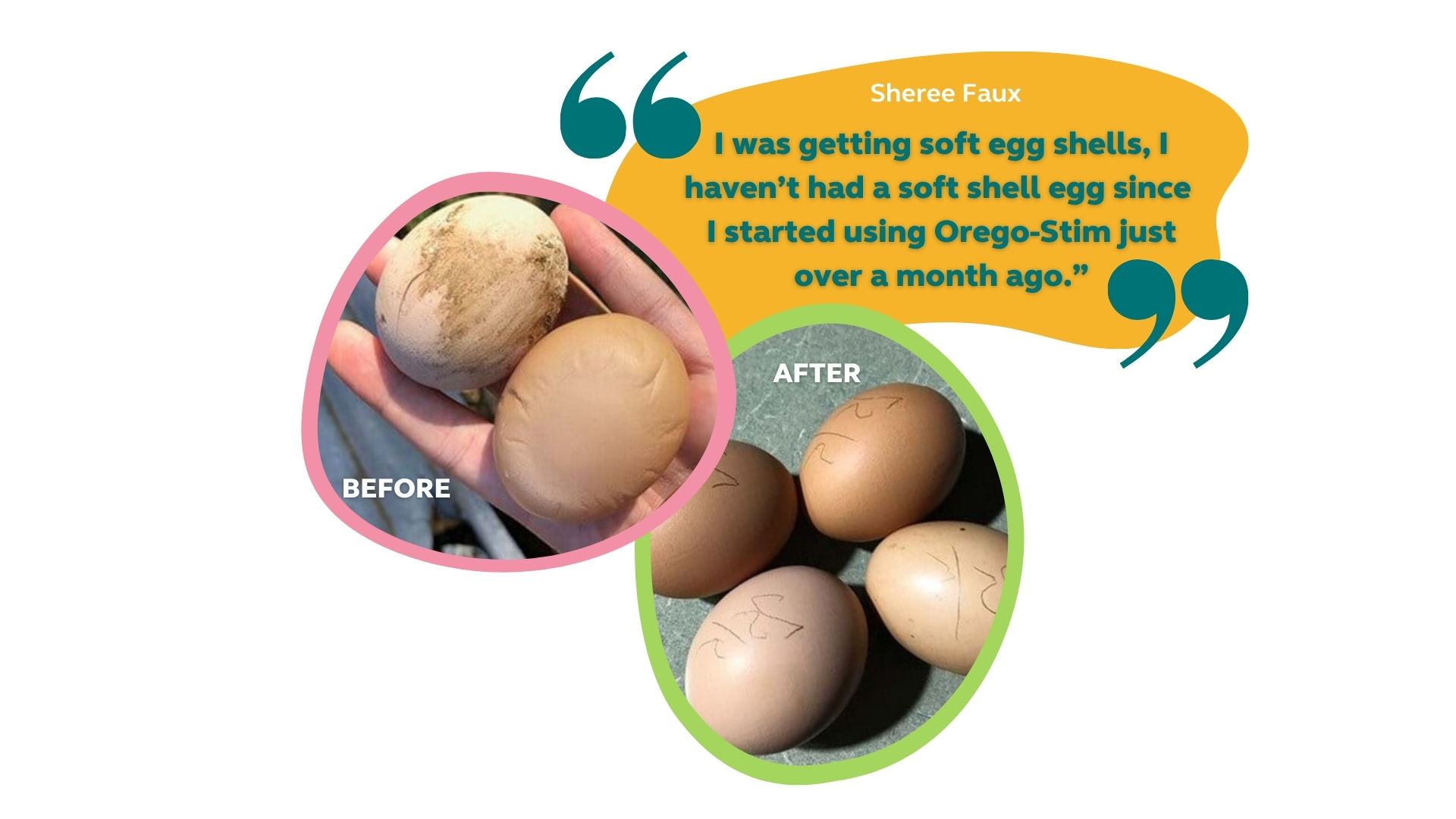Gut Health, Soft Shell Eggs, Dirty Eggs - All you need to know
Q1. What makes a "good egg"?
There are a number of factors considered when identifying a high quality egg:
- The egg shell should be clean, strong, a nice shape and a good texture.
The albumen (egg white) should be gel-like and stay relatively compact when the egg is cracked.
The yolk should be small and rounded and stand high in the white.
The egg should be the desired size.

Q2. What is a dirty egg?
- A dirty egg is an egg adhering dirt, faeces, foreign material or and/or prominent
staining.
Dirty eggs are one of the main causes of egg rejection in egg production.
Dirty eggs can carry harmful bacteria that can enter the eggs and if not cooked properly they can potentially cause food poisoning.
Avoiding dirty eggs is also of great importance if you are looking to breed your hens. When dirty eggs are incubated, the chances of producing a healthy, viable chick are reduced, since the microbial load is high.
Q3. What causes dirty eggs?
- There are multiple factors that can cause dirty eggs, and
these factors are often interrelated…
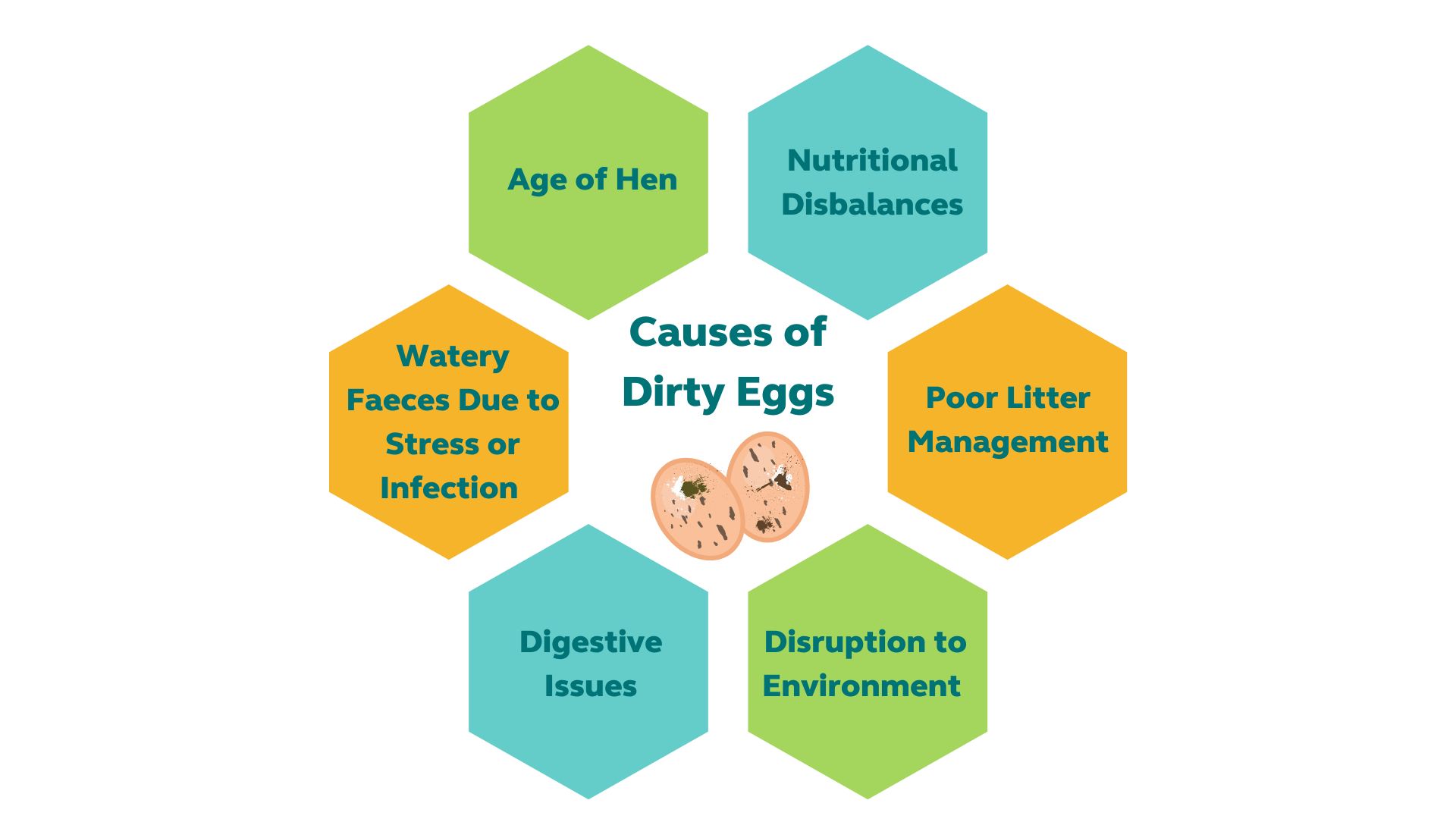
Q4. What can I do to avoid dirty eggs?
- Encourage hens to lay in the nest boxes. (Top Tip: If you have difficulty getting your hens to
lay in the nest boxes, you can put in a few ceramic eggs
to train them where to lay).
Discourage roosting in the nest boxes. Since chickens produce manure all night long while roosting, you’ll want to prevent them from roosting in the nest boxes. They’ll tend to roost in the highest places that they can get to, so place roosts higher than the nest boxes to encourage roosting on the roosts rather than in the nest boxes.
Gather eggs daily. Eggs are more likely to get dirty the longer they’re left in the nest box, so gather them once or even twice a day if possible.
Ensure hens have quality nutrition & support their gut health.
Q5. What is a soft shell egg?
-
A soft shell egg is an egg laid
with no shell or a paper thin shell.
They can be difficult for a hen to lay as the egg has no hard shell to help it exit the vent easily, and they can get stuck within the hen causing distress.
- Soft shell eggs can be caused by:
Q6. What can I do to avoid
soft shell eggs?
- Some of these factors are out of our control (like age),
some we can help (like diet), and some factors are bigger causes for concern
than others (like illness and stress).
One of the most frequent causes of laying soft eggs is a diet low in calcium. While most quality layer feeds have extra calcium in them, you could also offer a supplement just to make sure your hens get enough.
Consider why your birds might be experiencing more stress than usual. Have they got enough space? Are your chickens experiencing heat stress? Is there bullying amongst your birds?
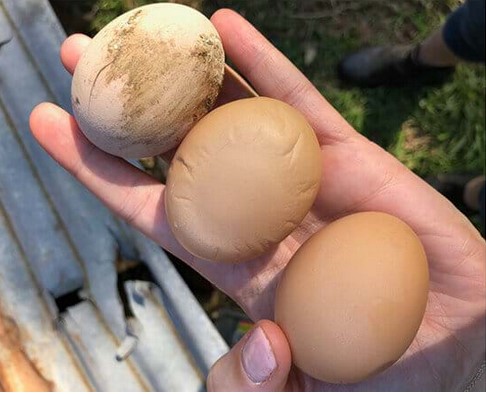
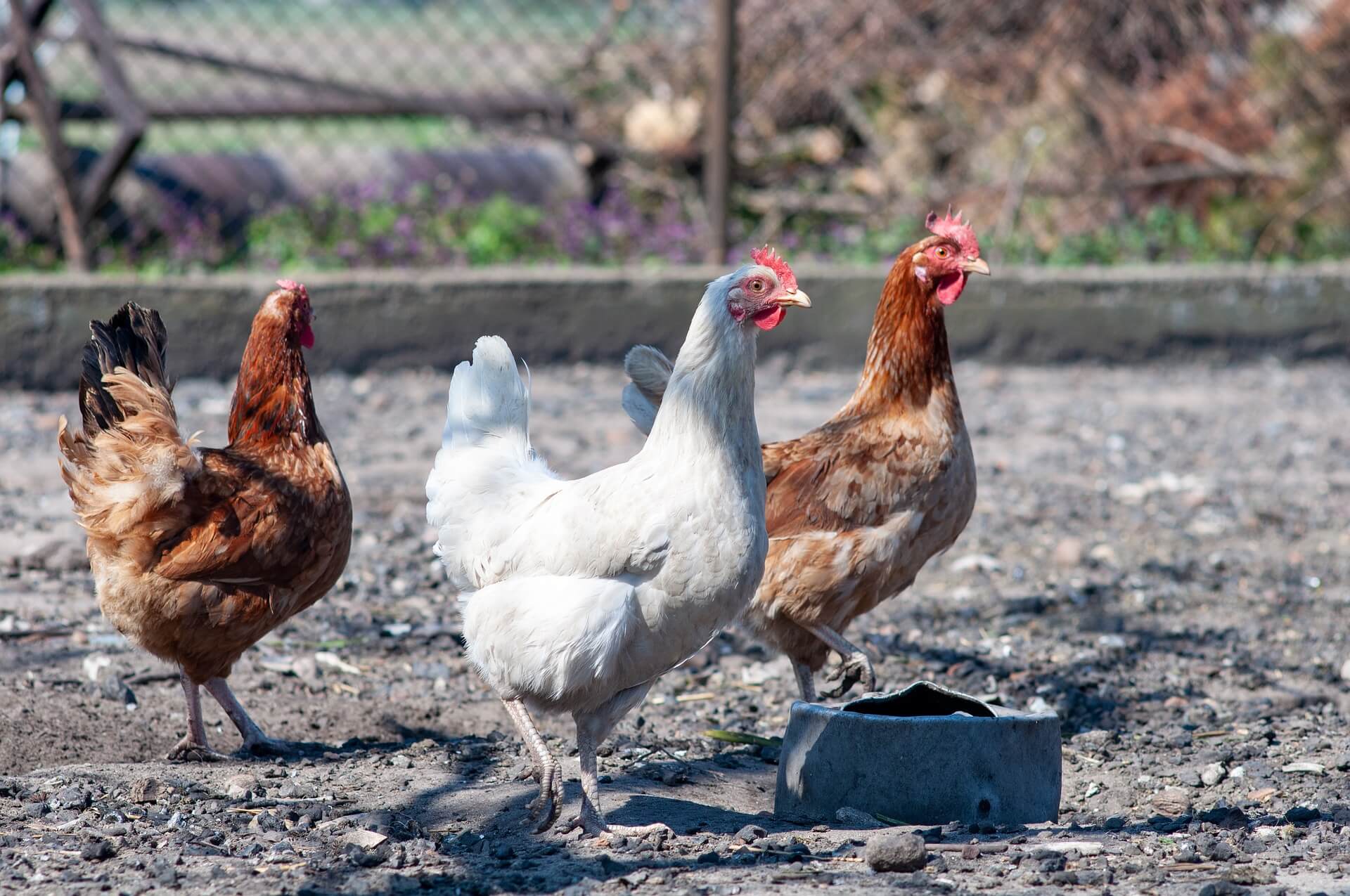
Q7.
How does nutrition effect
clean egg production?
- If your hens are getting all the recommended nutrients in
their daily feed, then the number of dirty or soft eggs they produce can be reduced.
It can be tricky to know what ingredients your birds might be lacking and despite our best efforts, there can be some ingredients which naturally contribute/increase the incidence of poor quality eggs.
Cereals such as rye contain high levels of non-starch polysaccharides that lead to sticky faeces and therefore increase the incidence of dirty eggs.
Another reason for dirty eggs is the problem of wet droppings (mild diarrhoea). This is mostly caused by disease or environmental stress, but certain nutritional factors can also impact the situation. Feed or water high in mineral salts can cause excessive water secretion in the gut resulting in a high water concentration in the faeces.
Gut health and its relationship to dirty egg production has been extensively researched. Supporting a healthy gut microbiome reduces the likelihood of wet faeces and supports digestion for high quality egg production.
Q8. How does Orego-Stim
help reduce dirty eggs?
- Orego-Stim (OS) has
been shown to support gut health, and nutrient digestion and absorption.
This can support calcium availability for egg shell production, helping to support water reabsorption in the lower gut, producing firmer droppings which avoids dirty eggs. Improved calcium absorption from the diet supports shell quality avoiding cracked eggs.
Orego-Stim supports normal gut health by balancing good and bad bacteria, reducing the number of bad bacteria which contribute to wet droppings.
Q9. What evidence is there to show Orego-Stim supporting egg quality?
Click the buttons below to read the full trial summaries......
- Dirty
eggs were reduced by 58%
in OS supplemented hens, just 15 days after the start of supplementation.
In OS supplemented hens, dirty egg production continued to decline with a reduction of 78% at 30 days following inclusion
- Hens supplemented with Orego-Stim powder not only had higher egg production and a 6-point improvement in feed conversion ratio, but they also produced a larger proportion of USDA Grade A eggs of a higher quality.
- Supports Heat Stress: Hens from sheds where water was supplemented with OS liquid were better able to cope with the challenge of heat stress and the percentage of dirty eggs was much closer to the 5% target.
- Hens
supplemented with OS liquid produced more large and medium graded eggs.
They were 1.1 times more likely to produce 1st class eggs.
- Hens
supplemented with OS produced significantly fewer dirty eggs compared to
the control group.
They also produced an extra 61g of egg mass and 1.6 extra whole eggs per hen on average, as well as producing 0.03% fewer broken eggs.
- The addition of
Orego-Stim in layer diets from the start of laying until end of lay resulted in
reduced numbers of second class cracked, dirty and liquid eggs.
OS supplemented layers also had a 1.7% increase in first class eggs.
Improved egg production, egg quality and economic gain, gave an ROI of 5.5:1.



